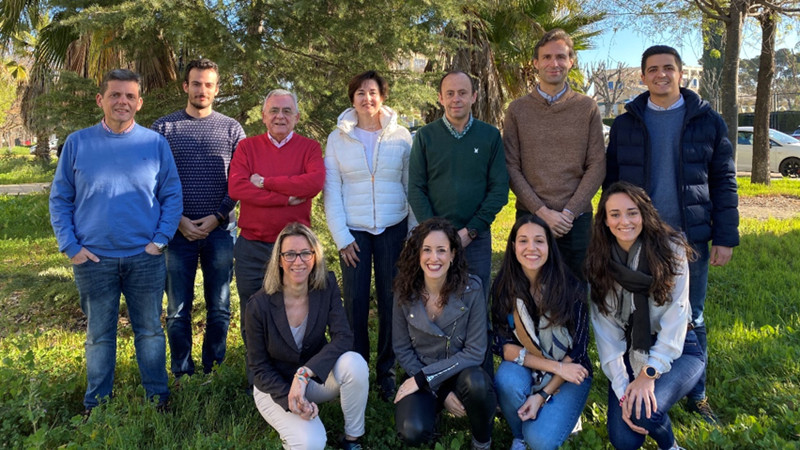Research in the Water and Energy Nexus in Irrigation and Urban Water Supply Systems Carried out by the Group of Hydraulics and Irrigation of the University of Cordoba (Spain)
Water and energy resources management has become a very important challenge in a climate change and water shortage scenario. In this context, the research group in Hydraulics and Irrigation of the University of Cordoba (AGR228), coordinated by Professors of Hydraulic Engineering José Roldán and Emilio Camacho, has been working for many years in the Water and Energy nexus mainly in the irrigation sector but also in urban water supply. The current research lines are related to the use of Performance indicators and benchmarking techniques, the evaluation of modernization processes in irrigation communities, water and energy nexus in the irrigation sector, water footprinting, precision irrigation techniques, photovoltaic energy for irrigation water supply, the recovery of excess pressure with pumps working as turbines, application of reclaimed water for irrigation or the use of artificial intelligence as a prediction tool for optimum water and energy resources management.

Since 2016 the group has a collaboration agreement with the Provincial Water Company of Cordoba (Emproacsa) coordinated by Professors Pilar Montesinos and Jorge Garcia. The aim of the agreement is to support the digitization process of this water supply company from the implementation of a Geographic Information System, GIS, a hydraulic model, HM, a IoT sensor network and a data analysis module to develop a smart decision support system to support the decision-making process for the three water transmission systems operated by this company. Only low-cost hardware and open source software are used: QGis, as GIS, and EPANET as hydraulic simulator, Arduino microcontrollers or Sigfox and Thinkspeak for data communication and analysis. Additionally, the GIS is linked with a customized mobile App based on Google My Maps. This App facilitate the geolocation of any system element and the update of both GIS and HM by real time communication of system changes.
Another innovative research line funded by national research resources is the use of renewable energies in irrigation. In this sense, the group applies photovoltaic solar energy in irrigation systems, developing a smart system that couple the production of energy with crop water needs using different climate and water sensors. Also, Professor Juan Antonio Rodríguez is member of the REDAWN project, funded by an Interreg Atlantic Area programme, whose goal is the reduction of the energy dependency in water distribution networks (irrigation, urban supply, and industry). Within this project a micro hydropower plant (using a pump working as turbine) has been installed in an irrigation hydrant in Córdoba province to recover the excess of pressure normally dissipated by a pressure reducing valve. The energy produced is used to feed a fertigation plant and sand filters that used to be fed with a diesel generator.
In the case of reclaimed water, the main challenge is focused on the calculation of irrigation doses and adjustment of fertilization according to the quality of the water from the wastewater treatment plant. Under the umbrella of the “Reutivar project” led by Professor Emilio Camacho, a user-friendly mobile App has been developed for farmers for optimum deficit irrigation scheduling of olive trees, depending on the climate variables, soil type, type of emitter and the water quality. Also, the App gives recommendations of optimum fertilization plans that complement the nutrients already dissolved in the reclaimed water.
Within this line of research, Professors José Roldán and María Fátima Moreno, are carrying out a research project that studies the behaviour of drippers using treated wastewater and desalinated water. The wet bulb is also being modelled in drip irrigation using these waters in the sand-covering soils (“enarenado”) typical of greenhouses in the southeast of Spain, that has the highest concentration of greenhouses in Europe, although water resources are very scarce.
These research lines are the result of numerous research project (National and International, funding by public institutions and private companies) on which our group has been working in recent years. Our research outcomes have been published in high impact scientific journal and presented in national and international conferences and technical meetings.